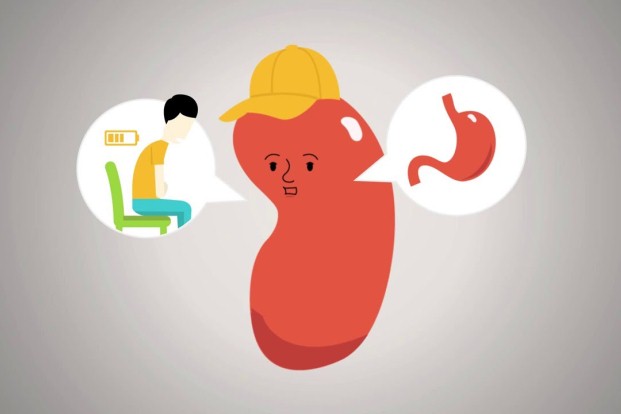Kidney Stones- Are They Troubling You?
Apr 19, 2022
A kidney stone is like a small rock that forms in the kidney. Stones form when certain chemicals in the body clump together. A stone can either stay in the kidney or travel through the urinary system by passing though the urine and not causing any harm.

What are the symptoms?
Very small stones might pass through the urinary system without causing much pain. Larger stones can block the flow of urine if they get stuck in the ureters or urethra. Kidney stones do not usually cause any symptoms until they start to pass. Some symptoms might include:
- Extreme pain in your back or side that will not go away
- Nausea
- Blood in your urine
- Fever and chills
Who are at risk ?
Anyone can have a kidney stone, but it may be more likely if you:
- Are male and are overweight
- Have had kidney infections
- Have a family member with kidney stones
- Have had kidney stones before
- Eat a lot of animal protein (such as meat and eggs)
- Do not drink enough liquids
- Have certain medicines which can cause kidney stones
How are kidney stones treated?
Treatment depends on the location and size of the kidney stone. Drinking plenty of water and taking some medicines can help a small stone to pass more easily. For problem stones, there may be a few options:
- Lithotripsy uses shock waves to break a large stone into smaller pieces that can pass.
- Ureteroscopic Stone Removal uses a small tool to get and remove stones stuck in the ureters.
- Percutaneous Nephrolithotomy uses surgery to remove large stones from the kidneys.
Depending on the location of the kidney stone and many other factors the doctor decides on the most suitable procedure.
How can I prevent kidney stones?
If you have had kidney stones before, you are more likely to have kidney stones again. To help keep stones from forming, try to:
- Drink 10 to 12 glasses of water each day
- Eat less salt (sodium), meat and eggs
- Find out what type of stone you have
- Ask your doctor for a urine test
- Talk to your doctor about your medicines and other tests for kidney stones
Do NOT reduce the calcium in your diet without talking to your doctor first! Studies show that limiting calcium in your diet may not stop kidney stones from forming and may harm your bones.




